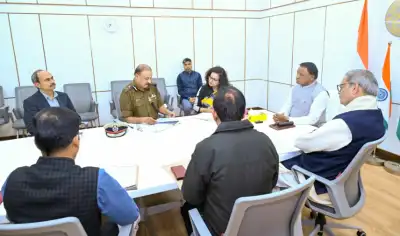

Bhubaneswar: As Bhubaneswar cements its position as eastern India's emerging tech hub, a disturbing trend lurks beneath the gleaming glass facades of its IT parks. Young professionals, once drawn by the promise of prestigious roles and competitive salaries, are increasingly finding themselves trapped in a culture of relentless work demands, impossible deadlines, and a toxic "always-on" mentality.
"I haven't seen daylight in three days," confesses Ankita Mishra, 26, a software developer at a prominent IT firm in Infocity. "I've been sleeping on the office couch between coding sprints. My team lead calls it 'dedication.' My therapist calls it exploitation."
Bhubaneswar's rapid transformation into a technology center has created thousands of jobs, but the human cost of this growth is becoming increasingly apparent. Industry insiders describe a troubling pattern of normalized overwork that's taking a devastating toll on the city's young talent pool.
"My girlfriend broke up with me because I missed her birthday dinner for the third year in a row," says Rohit Panda, 29, a management consultant who frequently works 80-hour weeks. "The irony is I was creating a PowerPoint about employee well-being programs while texting her my apologies."
Also Read: Odisha extends undergraduate e-Admission deadline to June 1
The emergence of remote work technologies has paradoxically worsened the situation for many professionals in Bhubaneswar. What was initially promoted as flexibility has morphed into an expectation of round-the-clock availability. Slack messages at midnight, 6 AM emails flagged as "urgent," and weekend work disguised as "quick check-ins" have become standard.
Suvendu Patnaik, an HR professional with 15 years of experience in the industry, observes: "Companies publicly champion work-life balance while privately rewarding those who sacrifice everything for the job. The messaging is completely contradictory."
The health implications of this imbalance are becoming impossible to ignore. Local physicians report seeing an alarming increase in stress-related conditions among young tech workers.
"My doctor said I'm 28 with the heart of a 50-year-old," shares Priya Mohanty, a data analyst at a multinational consulting firm in Bhubaneswar. "I've developed hypertension, chronic insomnia, and anxiety. When I mentioned taking a break, my manager suggested 'wellness webinars' I could attend after hours."
Dr. Samir Kumar Das, a cardiologist at a leading Bhubaneswar hospital, confirms this troubling trend: "I'm seeing patients in their twenties and early thirties with stress-induced cardiac issues that were once typical of middle-aged executives. The common denominator is working in high-pressure IT or consulting roles with impossible expectations."
While companies justify intense work cultures as necessary for productivity and competitiveness, evidence suggests these practices may actually be counterproductive. A recent survey of IT firms in eastern India found that companies with better work-life balance reported lower turnover, fewer sick days, and higher overall productivity.
"We call ourselves 'corporate hostages,'" explains Deepak Sahoo, who recently quit his position at a leading tech company after experiencing a panic attack during a client call. "Everyone knows the system is broken, but we're all too exhausted to challenge it. Leaving felt like escaping a cult."
Some local companies are beginning to recognize the problem. Innovan Solutions, a mid-sized IT firm in Bhubaneswar, has implemented strict "no contact" hours and mandatory vacation time. Their CEO, Kanisha, explains: "We found that well-rested employees with fulfilling personal lives actually deliver better results. It's not rocket science, it's basic human psychology."
Young professionals are also increasingly prioritizing workplace culture over prestige or compensation. Online forums for Bhubaneswar's tech workers now regularly feature discussions about company work-life balance, with detailed accounts from current and former employees.
"I took a 20% pay cut to join a company that respects my time," says Avinash Kumar, a UX designer who made the switch six months ago. "My family says they finally recognize me again. I'm present at dinner. I remember what my apartment looks like in daylight. No amount of money was worth what I was losing."
As Bhubaneswar continues its ascent as a technology hub, the sustainability of its current work culture remains in question. For the city's ambitious young professionals, the pursuit of success increasingly requires calculating exactly how much of themselves they're willing to sacrifice—and whether the cost has already become too high.